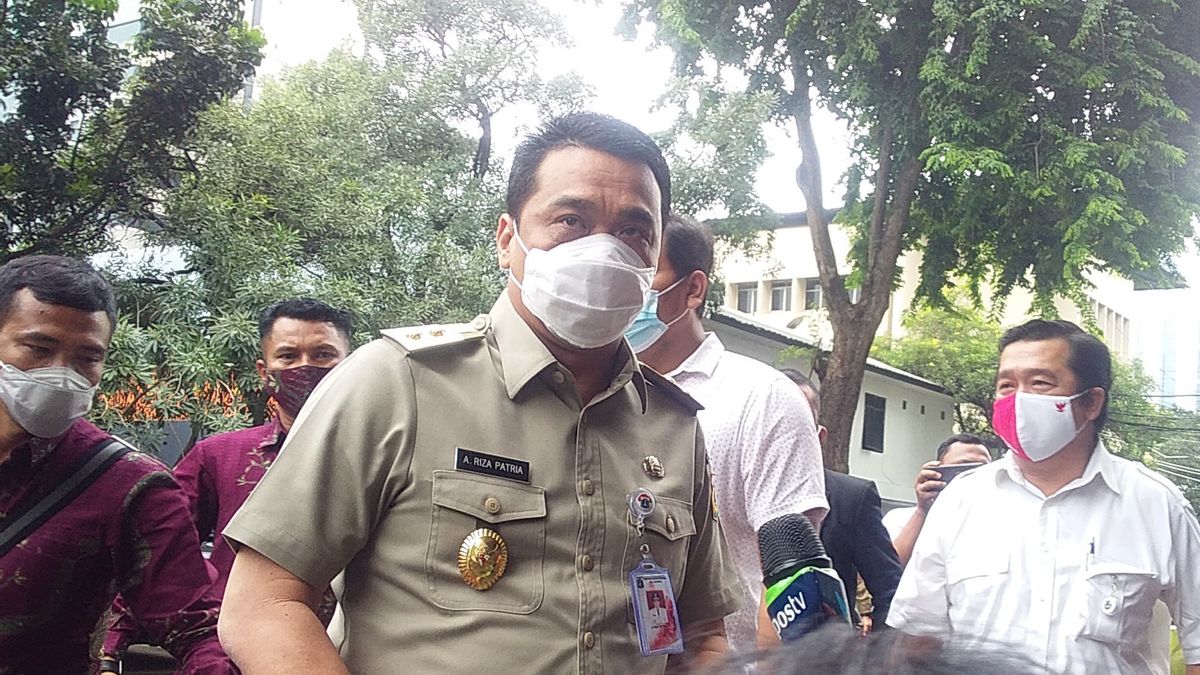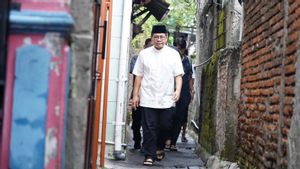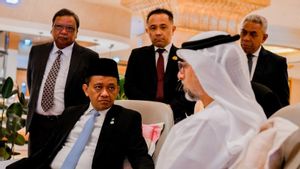JAKARTA - The DKI Jakarta Provincial Government has opened a complaint service for employees who are required to work in the office or work from office (WFO) during Emergency PPKM, even though the company is outside the essential and critical sector.
Deputy Governor of DKI Jakarta Ahmad Riza Patria said that this complaint could be reported through the JAKI application made by the DKI Provincial Government. It guarantees the confidentiality of the identity of the reporting employee.
"We ask employees or the public to report if they find offices or business places that violate the Emergency PPKM. We will keep their identities confidential. We guarantee the confidentiality of the whistleblowers," said Riza at DKI City Hall, Central Jakarta, Tuesday, July 6.
If an employee is caught reporting a violation and gets a sanction from the company, Riza guarantees that the DKI Provincial Government will revoke the company's permit.
"For example, if an employee is caught after being tracked down, we will give the company sanctions later. The company chooses, wants to fire the employee, instead we revoke the business license," he explained.
Previously, the Head of Public Relations of the Polda Metro Jaya Kombes Yusri Yunus said the reason why non-essential and non-critical company employees continued to work in the office during Emergency PPKM was because they were afraid of being fired by company management.
"Some say that he will be fired if he does not come to work. Even though it has been determined that non-essential work sectors cannot (WFO)," said Yusri.
For information, the government requires 100 percent WFH for non-essential companies during emergency PPKM. Then, for essential sector offices, a maximum of 50 percent of work from office (WFO) employees are applied with a health protocol and for critical sectors a maximum 100 percent of WFO employees are allowed with a health protocol.
The essential sectors include finance and banking, capital markets, payment systems, information and communication technology, non-COVID-19 quarantine handling hotels, and export-oriented industries.
The coverage of critical sectors is energy, health, security, logistics and transportation, food, beverage and supporting industries, petrochemicals, cement, national vital objects, disaster management, national strategic projects, construction, basic utilities (such as electricity and water), and fulfillment industries. basic daily needs of the community.
The English, Chinese, Japanese, Arabic, and French versions are automatically generated by the AI. So there may still be inaccuracies in translating, please always see Indonesian as our main language. (system supported by DigitalSiber.id)













